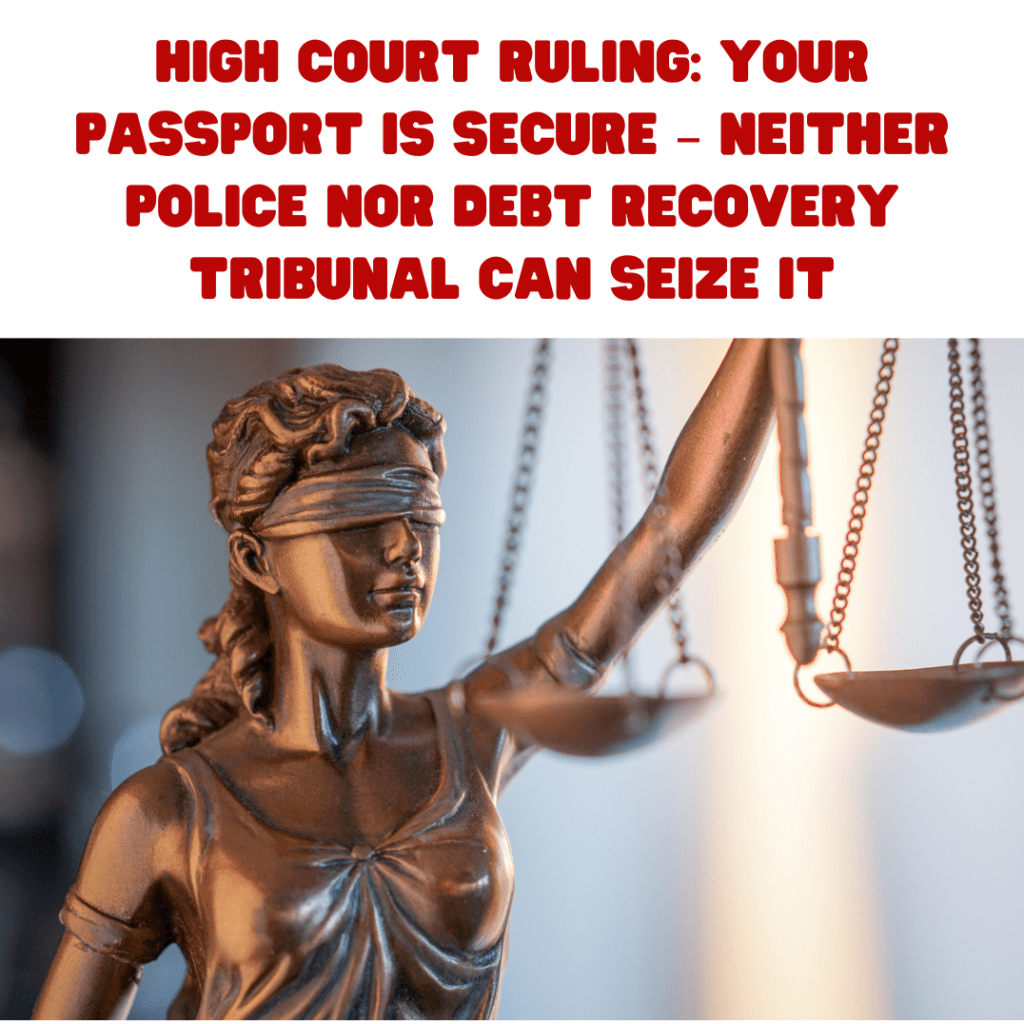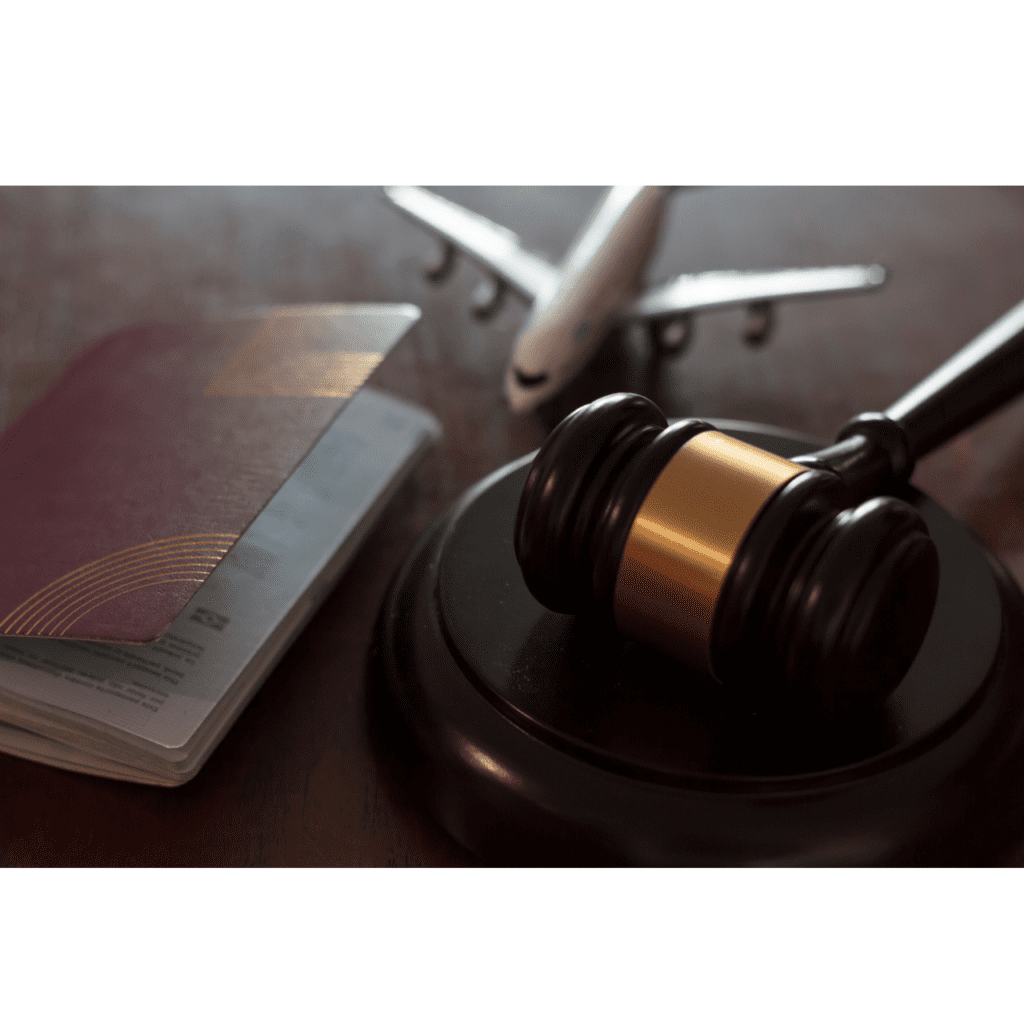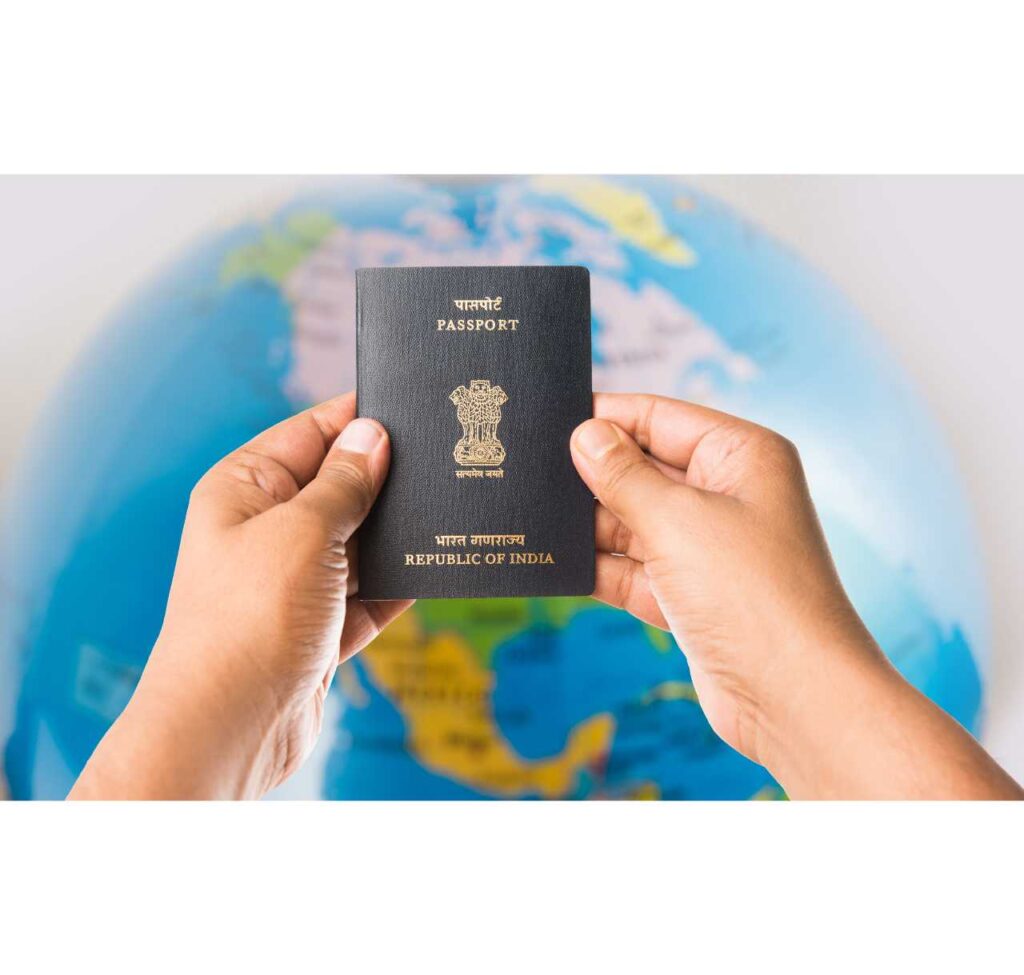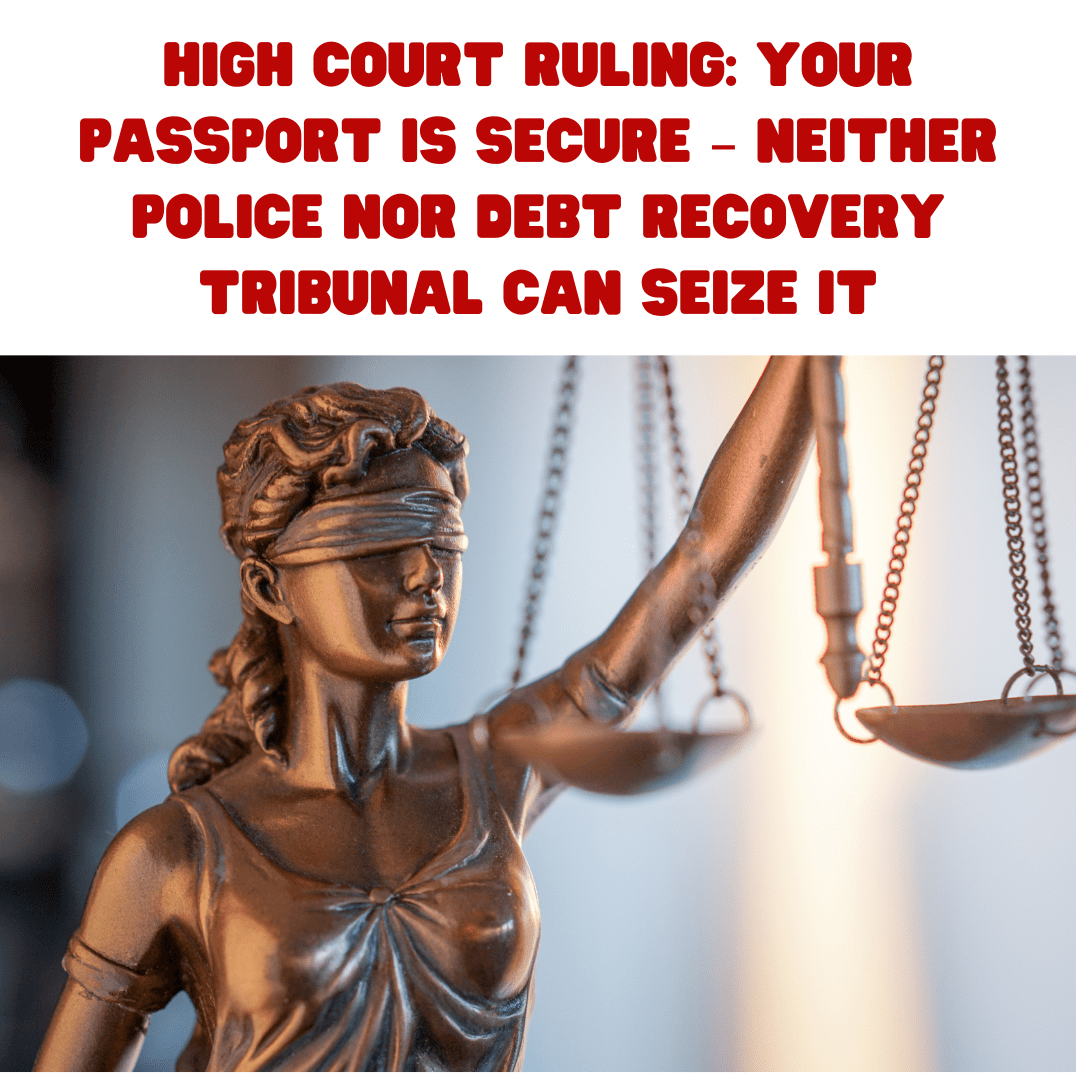Introduction:
In a recent landmark decision, the High Court of Karnataka has delivered a crucial message: your passport is safe from seizure by neither the police nor the Debt Recovery Tribunal (DRT). This significant ruling brings clarity to the legal landscape, emphasizing the protection of an individual’s right to hold and travel with their passport.
Background:
The case dates back to 1999 when businessman Nitin Shambhukumar Kasliwal entered into an agreement with various lenders for secured loans. Fast forward to 2015, the lender banks initiated a case before the Debt Recovery Tribunal seeking repayment and the potential attachment and sale of Kasliwal’s properties.
DRT’s Attempt to Impound Passport:
In their pursuit, the banks filed an application for the surrender of Kasliwal’s passport. On April 16, 2015, the Debt Recovery Tribunal-1, Bengaluru, passed an order retaining his passport. Kasliwal, facing travel requirements, subsequently filed applications with the Tribunal, surrendering his passport whenever he needed permission to travel.
Legal Battle and High Court Intervention:
In December 2016, Kasliwal sought the release of his passport for renewal, but his application was rejected. Frustrated with the decision, he turned to the High Court for justice. Justice M Nagaprasanna presided over Kasliwal’s petition, and on December 6, 2023, delivered a judgment that carries implications for passport-related matters.
The Tribunal’s Powers and Passport Act:

The court, in its wisdom, noted that the Debt Recovery Tribunal holds powers similar to a civil court. However, a pivotal question arose – could the Tribunal, under the powers of Sections 102 and 104 of the Criminal Procedure Code, direct the withholding of a person’s passport? The court’s answer was a resounding ‘NO.’
The Passport Act, the court stressed, is a special enactment that takes precedence over the powers of civil and criminal courts when it comes to passport matters. Even though the Tribunal mirrors a civil court in procedural aspects, the court clarified that it lacks the authority to impound passports.
Sections 102 and 104 – Limitations:
Delving into Sections 102 and 104, which empower the police to seize and the court to impound documents, the court emphasized that these provisions do not extend to passports. It articulated that the impounding of any document presented before the court does not translate to the power to impound a passport. The court stated, “Impounding of any document produced before the court cannot stretch to an extent that those courts can impound the passport also.”
Court’s Directive to Release Passport:
In a decisive move, the High Court ordered the Debt Recovery Tribunal to release Kasliwal’s passport. The court firmly asserted that the act of the Tribunal in directing the surrender or detention of a citizen’s passport would equate to an impermissible impounding of the passport. The court made it clear that such power is beyond the Tribunal’s jurisdiction.
Significance of the Ruling:
This legal pronouncement goes beyond the specific case, setting a precedent for similar instances where the powers of various legal entities are called into question. It reinforces the principle that special enactments, like the Passport Act, must prevail over general powers exercised by civil or criminal courts. This establishes a clear boundary in the realm of passport seizure and impoundment, safeguarding the rights of individuals.
Conclusion:
In a world where the importance of passports cannot be overstated, the High Court’s ruling brings relief and assurance to every citizen. Your passport is a secure document, and this decision serves as a beacon, guiding legal discourse toward protecting individual rights. As citizens, we can take comfort in knowing that neither the police nor the Debt Recovery Tribunal can infringe upon our right to hold and use our passports freely.



















What do you think?
It is nice to know your opinion. Leave a comment.